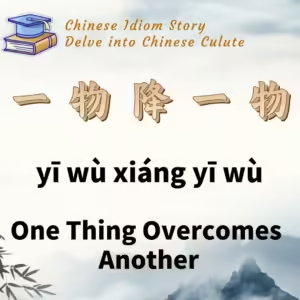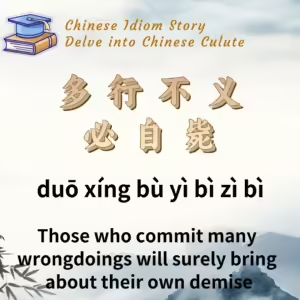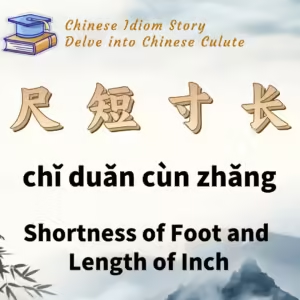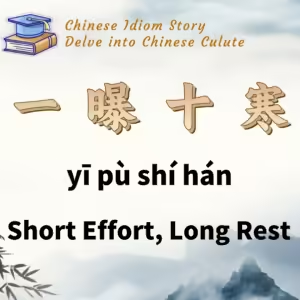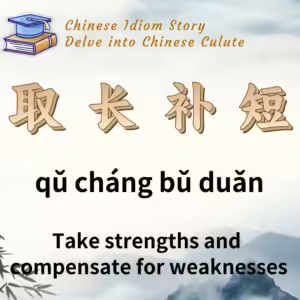
Chinese Idiom: 取长补短 (Qu Chang Bu Duan)
English Translation: Take strengths and compensate for weaknesses
pīn yīn: qǔ cháng bǔ duǎn
Idiom Meaning: This idiom means to learn from others’ strengths to make up for one’s own shortcomings. It can also refer to using the strengths of one thing to compensate for the weaknesses of another. “长” refers to strengths or advantages, while “短” refers to deficiencies or shortcomings.
Historical Source: Mencius · Teng Wen Gong I (《孟子·滕文公上》)
Idiom Story:
Around 327 BC, Mencius, a prominent Confucian philosopher, traveled from the State of Qi to the State of Song. At that time, the King of Song, King Yan, claimed to practice benevolent governance. Mencius urged an official named Dai Buxing to recommend virtuous individuals to the king.
Meanwhile, the Crown Prince of the State of Teng, who had not yet inherited the throne, visited Chu and passed through Pengcheng (modern-day Xuzhou, Jiangsu Province), the capital of Song, where he met Mencius. During their meeting, Mencius explained to the crown prince that human nature is fundamentally good and encouraged him to govern with the same moral principles as ancient sages like Yao and Shun.
After some time, the crown prince returned from Chu and visited Mencius again. Worried that the prince hadn’t fully grasped his earlier teachings, Mencius reiterated the importance of practicing benevolent governance. He quoted the wisdom of Confucius’s disciple, Yan Yuan, saying that if one is determined, it’s possible to achieve moral greatness, just like the sage-king Shun.
Mencius then remarked, “今滕,绝长补短,将五十里也,犹可以为善国。” This statement suggested that if the State of Teng could take land from its extended borders and fill in its deficiencies to form a square territory of about fifty li (a unit of distance), it could still become a well-governed state. The phrase “绝长补短” (cutting the long and filling the short) was later extended into the idiom “取长补短,” meaning to draw from strengths and compensate for weaknesses.
The idiom has since evolved into a metaphor for humbly learning from others’ strengths to improve one’s own shortcomings, or to make the best of complementary strengths in any context.


